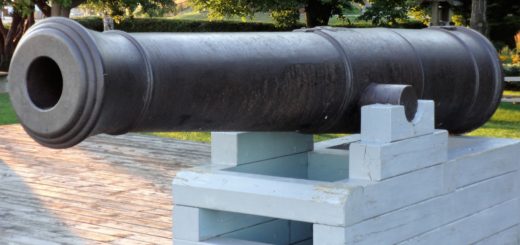“Freedom Caucus” Forfeits Its Civil Assets For Lord Trump
During the 2016 Republican primaries, a majority of that little U.S. congressional club calling itself the “Freedom Caucus” tried to hold the line for liberty — their self-assigned mandate, after all — against the ravaging populist lunacy of the Trump cult. Needless to say, like almost all other Republicans who used to pretend to constitutionalist principles, the FC has gone full “pod people” since Trump’s election.
Now, as the fight for Trump’s cult-building optic to end all optics, “The Wall,” has become a knock-down, drag-out fight in Congress, the chairman of the so-called Freedom Caucus, Mark Meadows, is arguing that if the Democrats do not cooperate with Lord Trumpy’s demands, then he ought to ignore procedure and precedent and use the questionably-gotten booty of civil asset forfeiture to build the southern gate of his theme park, Trumpland (formerly known as The United States of America).
Civil asset forfeiture, for those of you living in nations that still pretend to respect property rights, unlike the U.S.A., is a legal process whereby law enforcement officers may simply confiscate anything they believe may have been used in, or may have issued from, criminal activity, without having to prove that any criminal activity actually occurred, let alone to find anyone guilty of any crime in a criminal court. In other words, the police steal your stuff, and then the wealth gained is used to fund law enforcement activities.
Of course, many such cases, perhaps even most, will be instances in which a plausible-sounding case can be made for confiscating the “assets” — which used to be called property, but euphemisms are much easier to accept, aren’t they? — such as vehicles used to transport illegal drugs. But the practice, as one can easily deduce by briefly considering who is taking the goods, and who is materially benefitting from their use, lends itself to abuse, and is virtually a constant temptation to abuse of power placed in front of every law enforcement officer, with the full weight of the U.S. Government standing behind the officer.
To suggest that this same temptation to abuse should now be placed, not merely in front of law enforcement officers and agencies, but in front of elected politicians — men and women whose careers are already built on systematically abusing power and disregarding other people’s property and liberty — is insane. So, naturally, in this age of normalized insanity on all sides of American politics, the titular head of the congressional faction that claims to represent constitutional principles is all for it.
A confusing and complicated matter, isn’t it? Well, if you are looking for clarity, in the form of someone in the political apparatus with a history of speaking and acting from principle, regardless of the popular wave of any given moment, you could do a lot worse, and perhaps no better, than Supreme Court Justice Clarence Thomas.
Thomas has been a longtime critic of the general practice of civil forfeiture, even calling it “egregious” in a SCOTUS written opinion, and has voted against the other “conservative” judges on the Court when he thought they were erring on the side of giving carte blanche to this systemic abandonment of the concept of due process and the theory of private property ownership.
From a 2017 article at the Federalist Society website (the quotations are from Thomas’ court opinion):
Since it takes place in civil court, those proceedings “often lack certain procedural protections that accompany criminal proceedings, such as the right to a jury trial and a heightened standard of proof.” Fewer safeguards means it’s even easier for innocent owners to lose their cash, cars, or their own homes.
Perversely, “forfeiture operations frequently target the poor and other groups least able to defend their interests in forfeiture proceedings.” Justice Thomas cited how police in Tenaha, Texas seized cash from motorists and even threatened to hand their children over to Child Protective Services if they didn’t relinquish the money.
Spurring these abuses is the fact that under many civil forfeiture laws, “the law enforcement entity responsible for seizing the property often keeps it.” In turn, that creates “strong incentives to pursue forfeiture,” which has “become widespread and highly profitable.” Referencing a nationwide study on civil forfeiture by the Institute for Justice (where I work), Justice Thomas observed that “the Federal Government and many States permit 100 percent of forfeiture proceeds to flow directly to law enforcement.” And in 2014, the Justice Department’s Assets Forfeiture Fund collected $4.5 billion.
On the whole, “this system—where police can seize property with limited judicial oversight and retain it for their own use— has led to egregious and well-chronicled abuses,” he wrote.
Great idea, Freedom Caucus! Let’s extend the use of this confiscated property to Donald Trump! After all, The Wall! MAGA! No collusion!
Good grief.



